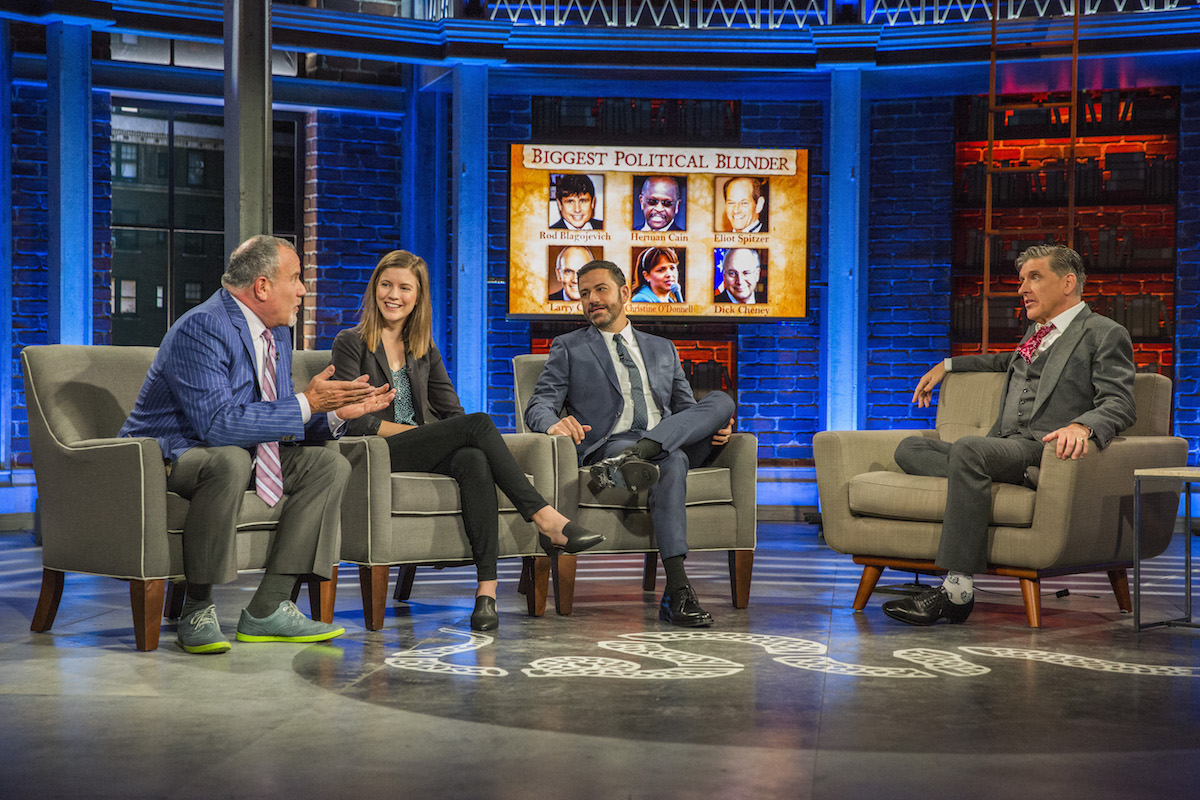
Who was history’s biggest douchebag? It’s not the sort of question typically asked on late-night TV, let alone in the sepia-toned documentaries that tend to to dominate historical programming. But it’s just the kind of question the veteran late-night host Craig Ferguson plans to tackle this season on his new History channel show, Join or Die With Craig Ferguson, premiering Thursday night, on which a panel of guests will debate historical superlatives.
To Ferguson, the answer matters less than the conversation it sparks. “When people say, Wait, how could you have a discussion about gangsters and not include Spatface Godzillaman?” Ferguson says of the inevitable gripes over the choices. “Well, you go and talk about Spatface Godzillaman.”
For nearly a decade Ferguson hosted CBS’s The Late Late Show, standing out for what critic James Poniewozik called “his wide-ranging, essayistic monologues” and “his idiosyncratic choices of guests whom he engaged with sincere curiosity and interest.” There were signs of his interest in history then—The Late Late Show won a Peabody Award in 2009 for an interview with Desmond Tutu that provided an overview of South African history–but he describes his new show as a chance to host discussions that go beyond the relatively superficial format of celebrity interviews.
“Because I had done the late-night show for such a long time, and the focus is very much on individuals and how to make them charming or discuss their projects, it’s one note. It’s not a terrible note but it was one note I had to play over and over again,” Ferguson says. “What I kind of wanted to do was have a show that was based on discussion in the true sense of the word.”
And history, he feels, is the perfect antidote to what’s ailing television: too often, he says, what passes for an exchange on TV is just people defending their own views without engaging with any other ideas. “Discussion on television is not Socratic at all,” he says, meaning that it rarely prompts a participant to change his or her mind, or to think more deeply about beliefs. By looking back at history—which, to Ferguson, includes everything from prehistory to the very, very modern—he’s able to draw out those conversations that he missed while doing The Late Late Show. History is the perfect subject for that goal because “there’s so much that’s unprovable,” Ferguson explains. “It’s hard enough to know what’s going on in the mind of an individual you’re talking to, let alone one who’s been dead for a couple hundred or a couple thousand years—no matter what they said.”
Which is, in its way, a caveat to viewers. Each episode introduces a preselected list of finalists for the superlative in question, which the panelists winnow down before the audience votes. Because of the vast scope of the topic—as Ferguson puts it, “there are way too many douchebags in history to narrow it down to even a couple of thousand” —and the host’s desire to draw in viewers who may not identify as history buffs, there’s a good chance that the final selection won’t be the one you or I or even Ferguson would have selected.
But that’s part of the idea. Ferguson’s goal is to fuel conversations that are passionate but not bullying, deep but not aggressive. “If you want to have your own beliefs reinforced without any doubt, go to church,” he says. “If you’re interested in the human race, and I am, and what makes people do things, then history is the only explanation.”
More Must-Reads from TIME
- Why Trump’s Message Worked on Latino Men
- What Trump’s Win Could Mean for Housing
- The 100 Must-Read Books of 2024
- Sleep Doctors Share the 1 Tip That’s Changed Their Lives
- Column: Let’s Bring Back Romance
- What It’s Like to Have Long COVID As a Kid
- FX’s Say Nothing Is the Must-Watch Political Thriller of 2024
- Merle Bombardieri Is Helping People Make the Baby Decision
Write to Lily Rothman at lily.rothman@time.com